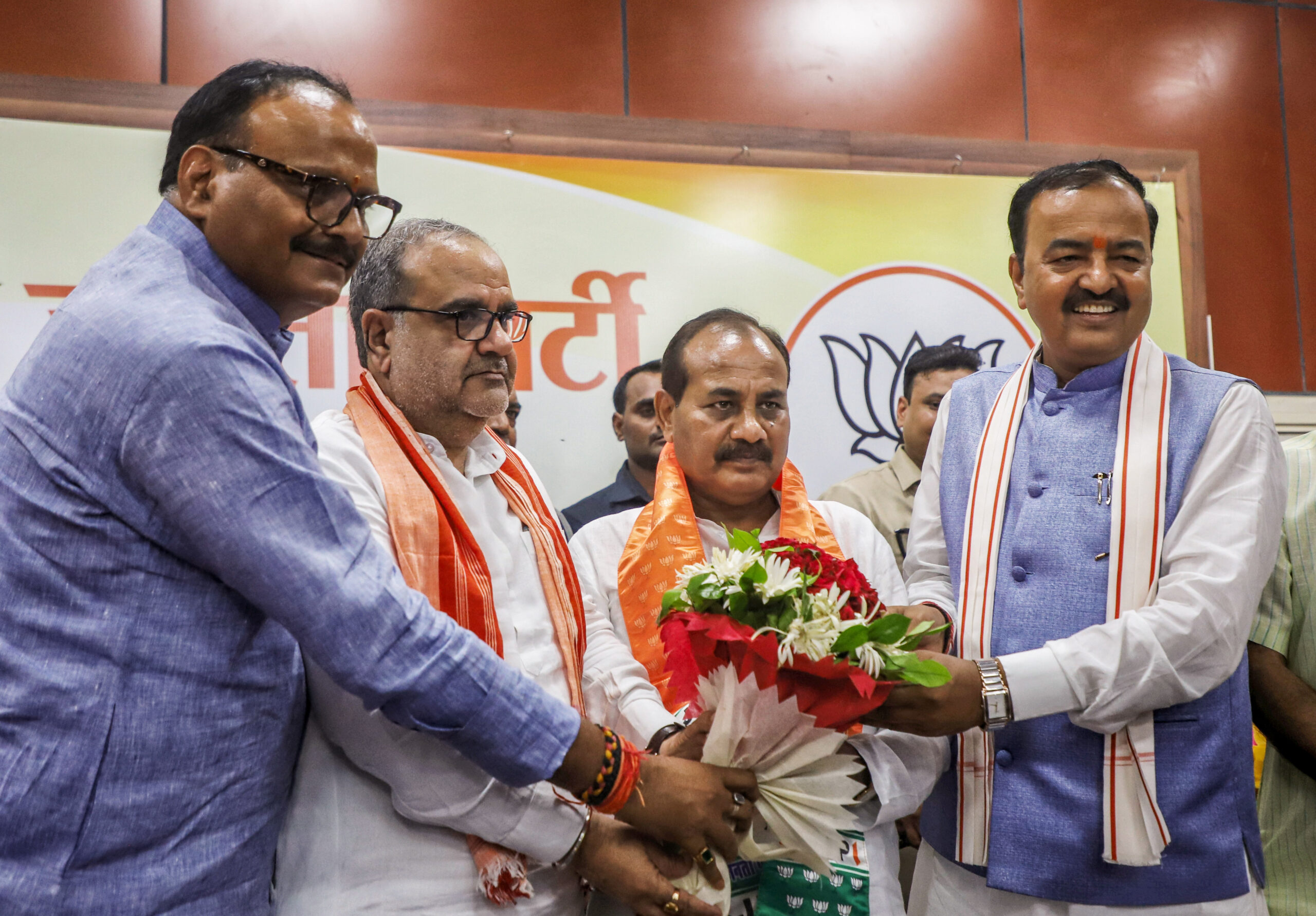
A by-election for an Assembly seat in Uttar Pradesh is emerging as the first example of the efficacy—even though in a limited manner—of the ideological coming-together of parties that claim to be part of the India coalition. The by-election to Ghosi Assembly seat, in Mau district of eastern UP, has pitted the ruling Bharatiya Janata Party (BJP) against the main opposition Samajwadi Party (SP), and for a change, all other Opposition parties–with the notable exception of the Bahujan Samaj Party–have decided to support the SP candidate.
The by-election was necessitated by rather ironical circumstances. The seat was won in the 2022 Assembly election by SP’s Dara Singh Chauhan, who defeated his BJP opponent Vijay Rajbhar by about 10,000 votes. Dara Singh Chauhan was earlier with BJP from 2015 to 2022 and had defected to SP in January 2022, just before the 2022 Assembly election when he was conveyed that the BJP may not field him as the party candidate. He contested and won from Ghosi as the SP candidate. However, on 17 July this year, he came back to BJP and resigned from the Ghosi seat. This led to the by-election where he is now contesting as the BJP candidate. The SP has put up Sudhakar Singh as its candidate. Polling is scheduled for 5 September in this seat comprising 4,10,000 voters.
So, basically it is Dara Singh’s personal political acumen that is at test. He enjoys political clout in the area and it is his persona that matters–not the party he belongs to–in an election. He has a wide following among the OBC community in the region and his clout during his stint with the BJP from 2017-2022 as a minister in the Yogi Adityanath government, is remembered by the people for many reasons. He has been a member of the Rajya Sabha during his early association with the BSP. He has shown a keen understanding of which direction the political winds are blowing. His stays with the BSP, SP and BJP have been marked by distinct political gains for himself, and his grip over the Ghosi and adjoining areas of May, Ballia and Azamgarh districts is well-known. Local people say he has been comfortable in all the three parties because of his grassroots connectivity and his acceptance across caste groups.
Interesting fight
In any other time, his victory from Ghosi would have been easy, given the advantages in his favour. But the emergence of a combined Opposition sentiment against the BJP this time has made things a little tricky for him. Not only has SP president Akhilesh Yadav taken Chauhan’s latest defection rather personally, he has also motivated family members Shivpal Yadav and Ram Gopal Yadav to handle campaigning in whichever way they can. Another boost to him has been the decision of the Congress to support him–by not putting up a candidate from Ghosi–but also the decision of two Left parties, CPI (ML) and CPI (M), to extend support to SP. Such support has also been announced by the Rashtriya Lok Dal.
Interestingly, the support by the two Left parties, Congress and RLD is more of a morale-booster kind, rather than indicative of any substantial gesture of vote transfer. Because of the presence of a sugar mill and some other agro-product mills, labour unions have held a sway over local politics, but the Left parties have never represented this seat in the Assembly. Similarly, the Congress has been rather ineffective here for quite some years. In terms of caste matrix, the Chauhans (kshatriya), Nishad and Rajbhars have been instrumental in deciding the fate of candidates in past elections.
Other than this, Ghosi is a sleepy little place, having long been a part of the undivided Azamgarh district. It is now a part of Mau district in Azamgarh division. It is well-known as a handloom weaving centre and a fairly big market for agriculture produce. It has also been affected by the activities of some noted criminal gangsters operating from Mau and Azamgarh in the past.
BJP’s strength
It is because of this that the support of Om Prakash Rajbhar’s party SBSP and Sanjay Nishad’s NISHAD Party to the BJP may play an instrumental role in Dara Singh Chauhan’s favour. The SP is depending on the sizable number of Muslim voters to swing the result in its favour.
At the same time, the large number of Dalit voters have been supportive of the BSP in the past, but this time appear wary of the SP since BSP leader Mayawati has been quite vocal in her criticism of Akhilesh Yadav and his Samajwadi Party. Even as the I.N.D.I.A alliance looks forward to its 1 September meeting for further action on its 2024 strategy, the SP and Congress are treating the Ghosi by-election as an example of how the alliance will take on the BJP in UP.
The formations in all UP seats may remain more or less the same—SP, Congress, Left parties (for whatever they are worth) and perhaps RLD being on one side; and the BJP, SBSP, NISHAD and Apna Dal on the other. If the present arrangement pays off for either side in Ghosi, it will send a powerful message to parties and voters alike. No wonder, then, that the BJP has deployed its senior ministers in the Ghosi campaign even as Akhilesh and his Team SP are touring the area regularly.
BJP’s win will further add to Yogi’s stature as a leader having full control over the state, whereas SP’s win will boost Akhilesh’s image and make the I.N.D.I.A spokespersons more aggressive in their attacks on the BJP and Yogi.
On the national front, Samajwadi Party’s win may force the Congress into acknowledging Akhilesh’s predominance in UP politics, leading to a seat-sharing formula to his advantage. A BJP win, on the other hand, might do just the reverse.
The writer has been editor of many prominent newspapers and is now a columnist.